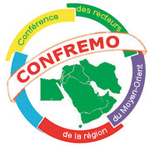Wars, languages and the role(s) of interpreters
Résumé
Translation and interpreting always consist of an adptation to local needs and local ears. If the military system is made up of a complex network of subsystems we can expect that interpreters were required to adapt to that complexity. With no theoretical preparation they utilised the tools that, according to their common sense, could help approach people from different languages as well as cultures. Interpreters were the gatekeepers in the communication sequence and, under military command but also based on their self social control, they alternated codes and strategies depending on circumstances, always trying to avoid getting drowned in an ocean of words or lost in translation.
Domaines
Linguistique
Origine : Fichiers produits par l'(les) auteur(s)
Loading...
